MercoPress. South Atlantic News Agency
Tag: economic growth
-
Tuesday, February 3rd 2026 - 12:57 UTC
Paraguay’s long-run growth leads South America, but income gains lag

From 1960 to 2024, Paraguay posted the highest cumulative GDP expansion in South America, according to calculations published by Forbes Paraguay and Colombia’s La República, drawing on World Bank constant-2015-dollar series. Over that span, Paraguay’s economy rose from roughly US$2.8 billion to about US$46 billion (2015 prices), multiplying more than sixteen-fold.
-
Monday, April 15th 2024 - 10:00 UTC
Brazil and Mexico looking ahead at significant economic growth
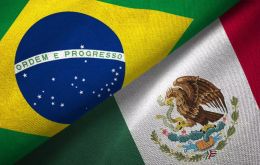
Only Brazil and Mexico would survive as world economic powers in Latin America by 2030, according to a study by PricewaterhouseCoopers (PwC) and Standard Chartered released last week. The two countries are expected to experience significant economic growth within the next six years.
-
Saturday, September 23rd 2023 - 12:09 UTC
Latin America’s Growth Conundrum

By Arminio Fraga, Guillermo Oritz and Andrés Velasco (*) – Since 1960, only a few countries in Latin America have narrowed the gap between their per capita income and that of the United States, while most of the region has lagged far behind. Making up for lost ground will require a coordinated effort, involving both technocratic tinkering and bold political leadership
-
Friday, August 11th 2023 - 17:30 UTC
Chinese recovery slowing down, with weaker trade and demands for fresh stimulus

China’s economic activity slowed and trade markers fell much faster than expected in July as weaker demand threatens recovery prospects in the world’s second-largest economy, heightening pressure for authorities to release fresh stimulus to steady growth.
-
Friday, October 14th 2022 - 10:08 UTC
IMF experts foresee economic slowdown in the region for 2023
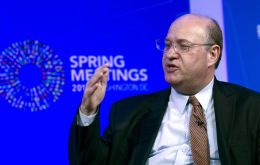
Growth projections in the region next year have been trimmed downwards due to inflation and skyrocketing interest rates, the International Monetary Fund (IMF) announced Thursday.
-
Saturday, September 10th 2022 - 10:35 UTC
Latin America growth not looking bright for Moody's in 2023
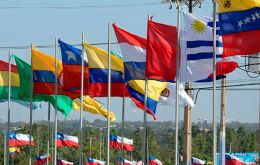
Credit rating consultants Moody's has warned that inflation and political risk will undermine Latin America's growth through 2023 amid recession both globally and in the region's main economies.
-
Tuesday, June 28th 2022 - 09:45 UTC
Uruguay foresees economic growth, job creation and tax cuts

Uruguay's Economy Minister Azucena Arbeleche Monday said the Government foresees a 4.8% growth in 2022 and the creation of 40,000 jobs, which would make the lowering taxes feasible.
-
Wednesday, April 20th 2022 - 09:44 UTC
IMF revises Argentina's projected growth upwards
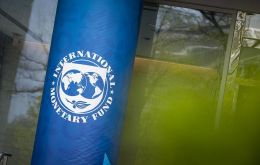
The International Monetary Fund (IMF) has raised its projections for Argentina's growth during 2022 to 4%, it was reported Tuesday in Washington DC. These figures show an improvement from those released just days ago by other agencies such as the World Bank (3.6%).
-
Saturday, March 5th 2022 - 09:50 UTC
Covid-19 measures and real estate debt are slowing economic growth, admits Beijing

China finally admits that the economy has suffered because of Covid 19 measures and the crackdown on real estate debt, and is this new “volatile, grave and uncertain” environment, the growth target has been lowered to “around 5,5%”.
-
Tuesday, October 26th 2021 - 20:05 UTC
Bright future ahead for Paraguay's economy
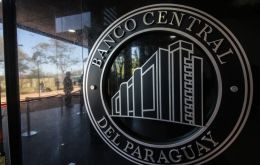
Paraguay's Treasury Monday forecast economic growth of 4.5% by the end of 2021, it was announced.
